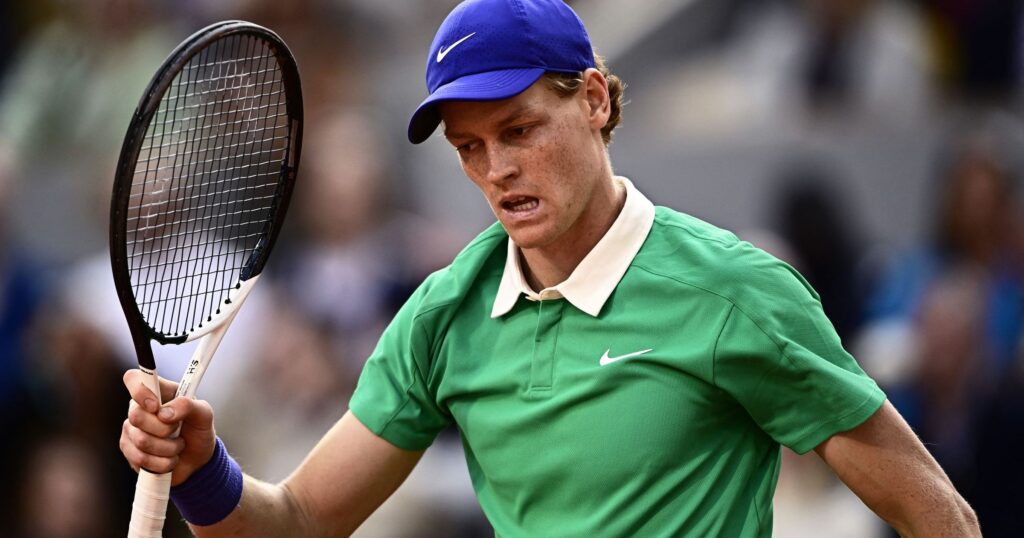At the recent Roland Garros final, a remarkable display of sportsmanship unfolded between two of tennis’s emerging stars, Jannik Sinner and Carlos Alcaraz. As the match progressed, Sinner showcased an extraordinary level of integrity and honor that transcended the competitive nature of professional sports. This moment occurred during a crucial point in the match, which heightened the stakes for both players and brought the crowd at the prestigious Stade Roland Garros to the edge of their seats.
As the match unfolded, tensions ran high, and the energy was palpable among the thousands of fans who gathered to witness this riveting clash. Sinner, having established himself as one of the leading players on the ATP Tour, exuded confidence while competing against the equally talented Alcaraz. At a pivotal moment, however, a disputed line call arose that could have swung the momentum in either player’s favor. The chair umpire did not have a clear view of the action, leaving the decision about the ball’s trajectory to the players themselves.
In an unexpected twist, Sinner chose to overrule the line call that had initially gone in his favor. This moment of honesty was emblematic of his sportsmanship and serves as a benchmark for this generation of athletes, who are often under pressure to prioritize winning above all else. Sinner’s choice created a wave of emotion among the spectators and commentators, celebrating the spirit of fair play that is often overshadowed by the fierce competitive drive that characterizes professional sports. The gesture not only highlighted Sinner’s character but also reminded everyone watching that integrity and respect are fundamental components of the game.
As the match progressed, the atmosphere at Roland Garros continued to build. Fans rallied behind both players, echoing the age-old adage of “may the best player win.” The unfolding drama epitomized the intensity of the match while spotlighting the mutual respect shared between Sinner and Alcaraz. It was clear that, despite the high stakes, both young athletes cared more about the honor of the game than the accolades associated with victory.
In this particular final, Sinner and Alcaraz put forth a display of thrilling athleticism and skill, making each point an art form that captivated the audience. The back-and-forth exchanges of powerful serves and strategic volleys were as exhilarating as the emotional crescendo following Sinner’s selfless act. This gesture didn’t just redefine that moment in the match; it set a precedent in the sports community, showcasing that great character can shine through even in the most pressure-laden circumstances.
Sinner’s selflessness ignited conversations about sportsmanship in tennis and beyond. Commentators and analysts praised his decision, suggesting that such acts can inspire current and future generations of athletes to uphold the values of fairness and respect. As both players continued to battle it out, it became clear that this match was about more than just the title—it was a narrative steeped in integrity.
As the climactic moments of the match approached, the spirit of camaraderie between Sinner and Alcaraz was palpable. They not only exhibited impressive tennis skills but also reinforced the rich tradition of sportsmanship that defines the essence of Roland Garros. This final will undoubtedly be remembered not solely for the outcome, but for the character displayed by both young men.
Ultimately, whether you were rooting for Sinner or Alcaraz, the real winners were the fans and the sport itself. Their shared respect and integrity will leave an indelible mark on tennis history, reminding us all that true greatness lies not only in accolades but in the dignity and respect that athletes offer on and off the court. This encounter at Roland Garros will echo through time, celebrated as a pivotal moment of ‘great sportsmanship’ in the world of tennis, elevating the standards of competition for years to come.



